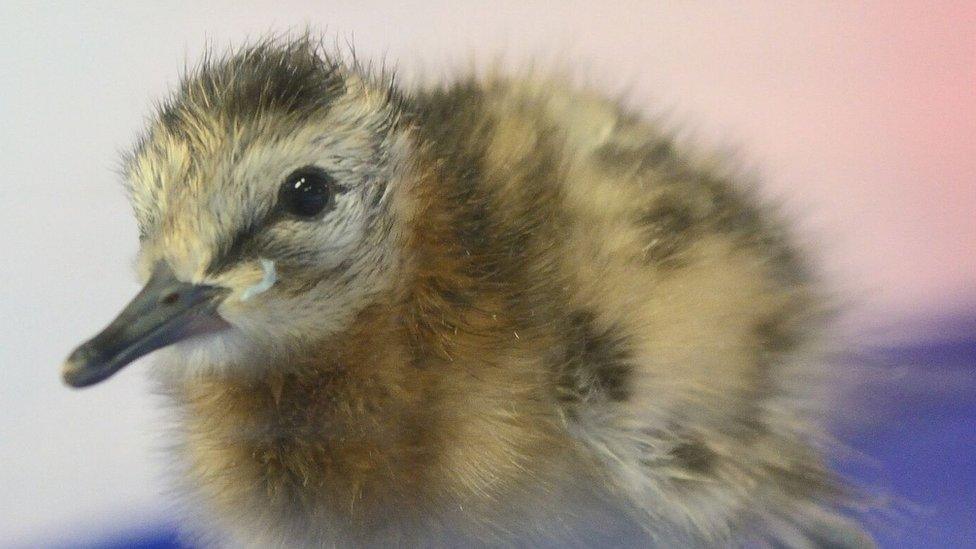Godwit eggs hatch after spring flood rescue
- Published
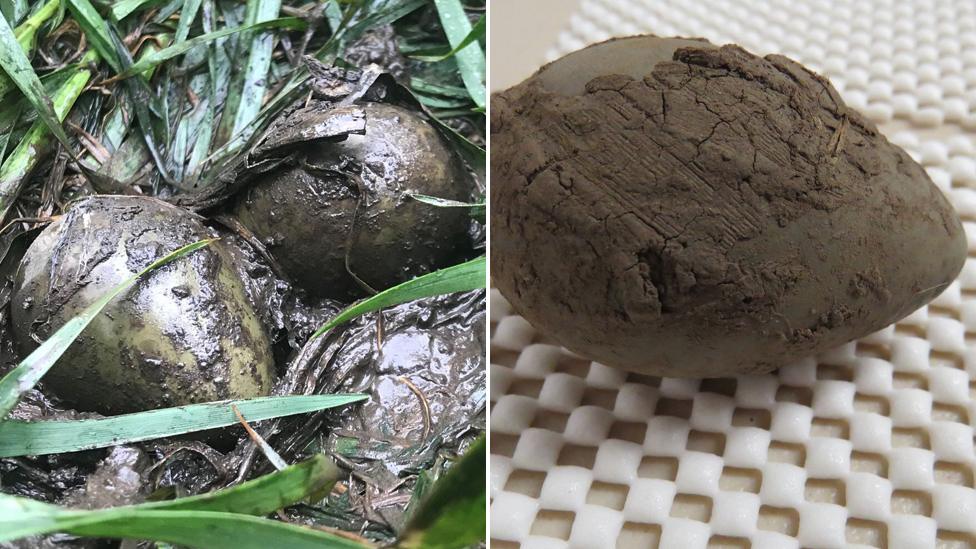
The "precious rare eggs" were in a "dire state", according to the RSPB's Hannah Ward
Conservationists have hatched 15 chicks of an endangered species on the RSPB's UK "red list", external after rescuing eggs from muddy farmland during spring floods.
The black-tailed godwits, of which there are fewer than 50 breeding pairs, are being hand-reared at the Wildfowl & Wetlands Trust in Norfolk.
The trust's Rebecca Lee said: "A number of the eggs were in such bad condition that they resembled muddy potatoes."
The ground-nesting birds' eggs "had no chance of survival in the wild".
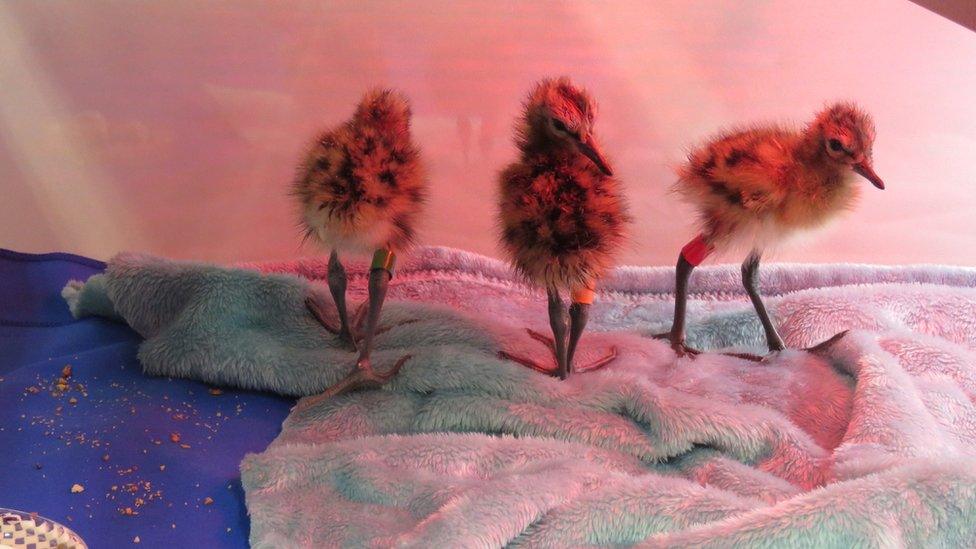
Farmers helped conservationists rescue 32 eggs, 15 of which have hatched
Conservationists teamed up with farmers to rescue 32 eggs after the godwits were forced by flooding away from the safety of the Nene Washes in The Fens in Cambridgeshire.
Ms Lee, who is the trust's principal species conservation officer, said: "Conditions were so bad we were concerned that they might not survive."
They used a technique called "head-starting", which involves collecting the eggs from the wild under a Natural England licence and hand-rearing them.
It is the second time they have successfully reared godwit chicks at the trust's reserve at Welney, in Norfolk, as part of Project Godwit, a five-year partnership with the RSPB.
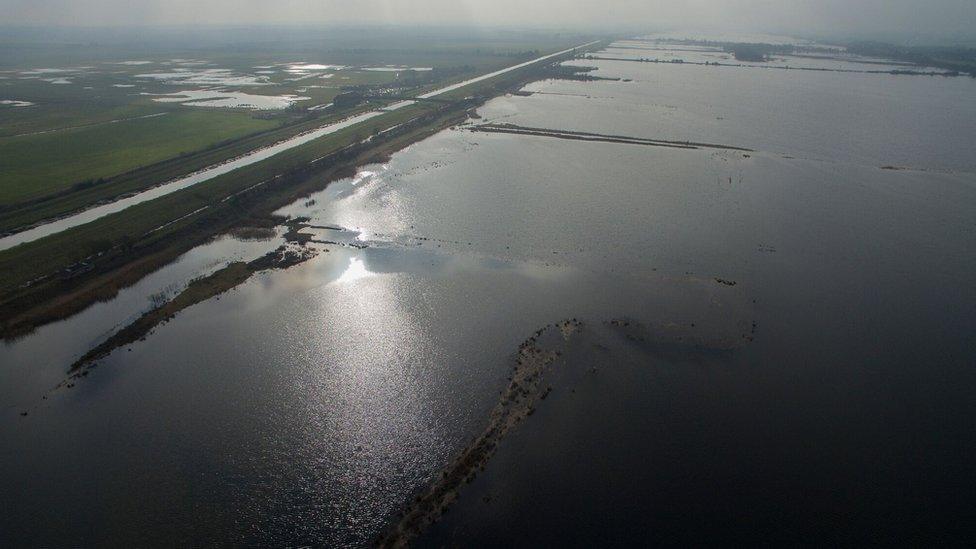
The Ouse Washes were created in the 17th Century to be a flood water storage area and to protect farmland and houses
Hannah Ward, RSPB Project Manager at Project Godwit, said: "The decision to intervene was not taken lightly.
"The extreme weather and the dire state of these precious, rare eggs meant they had almost no chance of survival in the wild."
The Nene and Ouse Washes are the two main breeding sites for black-tailed godwits in the UK.
It is hoped that head-starting, combined with better habitat management, will help restore the wading bird's population to numbers previously seen in the 1970s, when there were 65 breeding pairs.
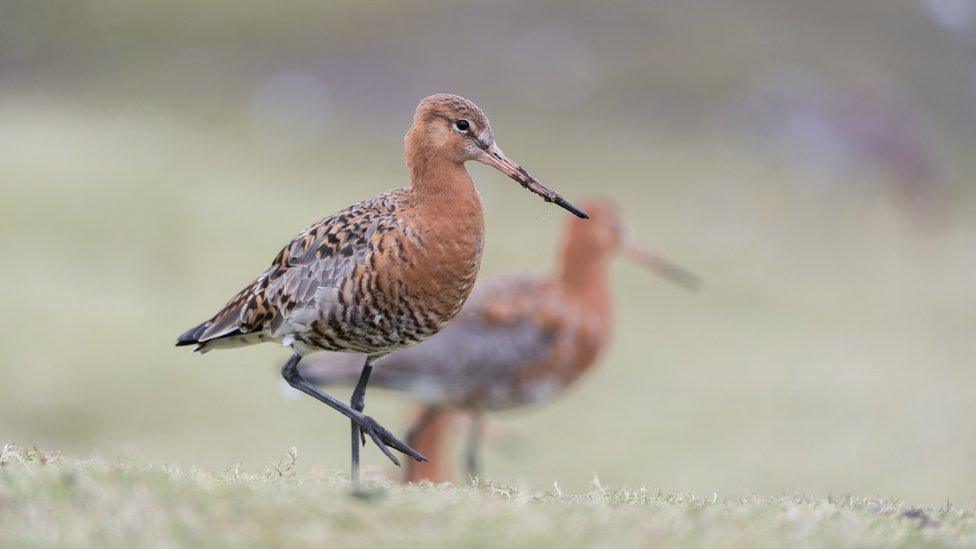
Godwits became extinct in the UK in the 19th Century, but they returned to England in the 1930s
- Published24 April 2018
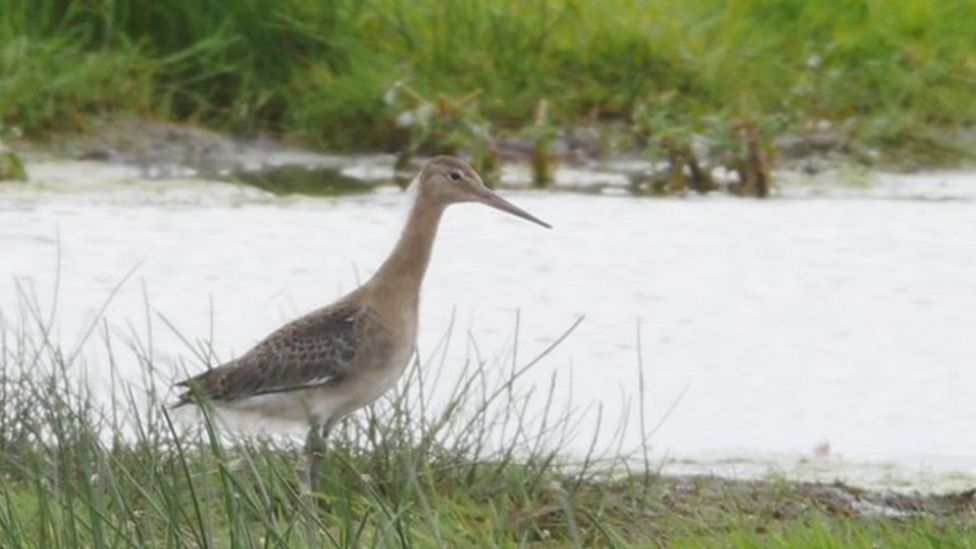
- Published13 June 2017
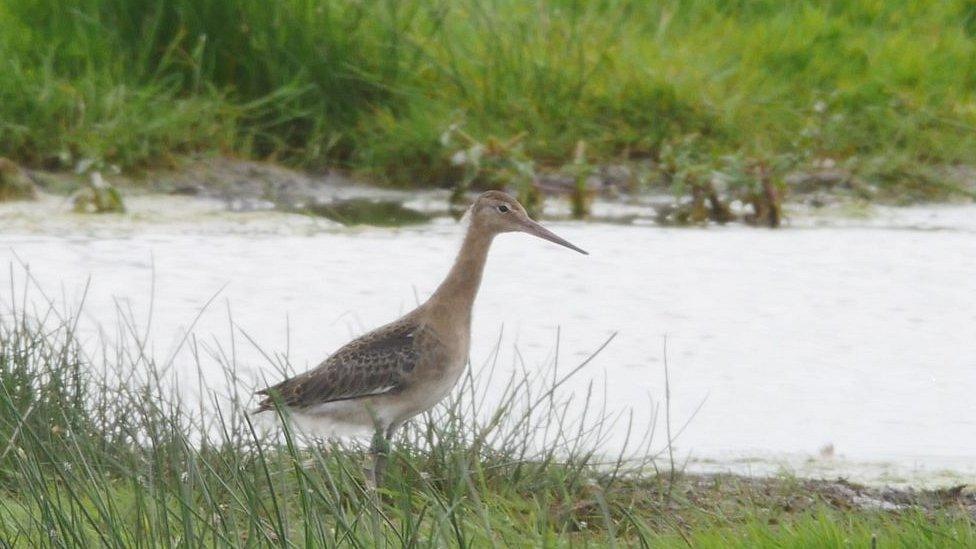
- Published12 May 2017
